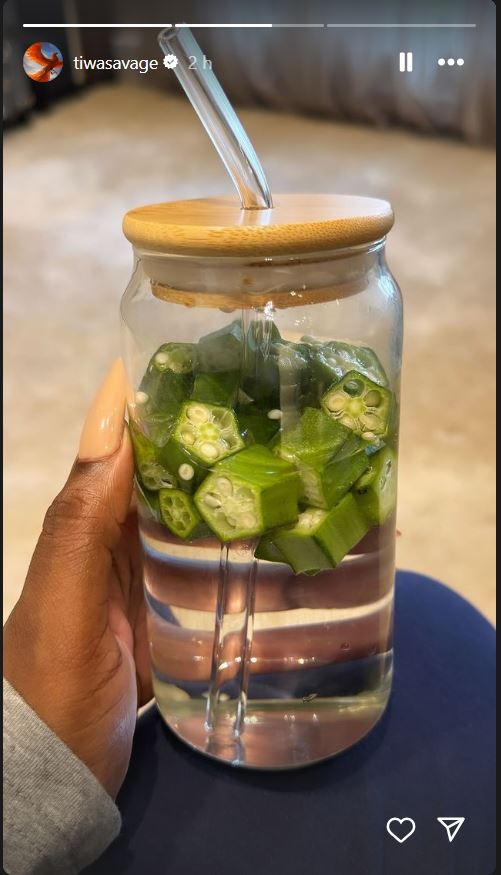Health
NAFDAC warns public against consuming hawked drugs, ripened fruits with chemicals

The National Agency for Food and Drug Administration and Control (NAFDAC) has warned that drugs sold in open markets and fruits ripened with calcium carbide are poisonous and dangerous to human health.
Prof. Mojisola Adeyeye, the NAFDAC Director-General represented by Dr Leonard Omokpariola gave this warning at the North-Central media sensitization at Lafia.
She emphasized that selling these drugs on the street, in motor parks or open markets like any other items constitutes a serious threat and should be tackled to curtail insecurity in the country. She said,
“The menace of drug hawking poses a serious challenge to the healthcare delivery system in the country and this underscored NAFDAC’s resolute determination to eradicate the illicit trade.
“Many drug hawkers are knowingly or unknowingly merchants of death who expose essential and life-saving medicines to the vagaries of inclement weather, which degrade the active ingredients of medicine and turn them to poisons thus endangering human lives.
“Most of the drugs sold by the illiterate and semi-literate drug hawkers are counterfeit, substandard or expired; and therefore, do not meet the quality, safety and efficacy requirement of regulated medicines.
“Prescription drugs are also sold by the itinerant drug hawkers who consult, recommend and prescribe medicines to their gullible patients,” she said.
Adeyeye also emphasized the importance of adopting natural methods for ripening mature fruits, such as employing paper bags, flour, rice, or the use of decomposing apple and banana peels.
She further issued a stern warning that NAFDAC would take legal action against any individuals found engaging in drug hawking or using calcium carbide for fruit ripening.
Mr Omoyeni Babatunji, the NAFDAC Nasarawa State Coordinator, expressed that NAFDAC firmly believes that the timely dissemination of accurate information plays a pivotal role in addressing public unawareness regarding issues related to sub-standard goods and the harmful use of chemicals.
Hence, this collaborative effort aims to bridge that knowledge gap.
The partnership between NAFDAC and the media was commended, with an assurance that media practitioners would disseminate this vital information to their intended audience.
Health
One in 12 men tested in Lagos showed signs of prostate cancer, says Goke Akinrogunde

Goke Akinrogunde, a medical practitioner and chairman of the honorary members’ forum of the Nigeria Air Force Officers’ Mess (NAFOM) Ikeja, says one in 12 men tested in Lagos showed signs of prostate cancer.
WHAT IS PROSTATE CANCER?
The prostate is the walnut-sized gland found in males.
It is located just below the bladder and in front of the rectum, surrounding the urethra — the tube that carries urine out of the bladder.
The prostate makes some of the fluid that is part of semen.
When a man has prostate cancer, it means the cells in the prostate gland have begun to grow out of control.
It is unclear what causes these cells to grow out of control.
CREATING AWARENESS
Akinrogunde spoke at the HMF-NAFOM annual general meeting on Wednesday. The event held at the Sam Ethan Airforce Base, Ikeja.
The event which had A. I Sambo, president of the mess committee (PMC), and T. Abu, the base’ commander, in attendance, featured a health session themed: ‘Men’s health, women’s concern: erection and prostate matters’.
The HMF is the honorary civilian wing of the air force officers’ mess.
Akinrogunde noted that the meeting serves as an avenue for socialisation between the military and civilian members of the mess.
He emphasised the importance of addressing the health and wellness of older men, while citing the prevalence of prostate cancer in Nigeria as the rationale for the theme.
“This meeting is a good opportunity for the civilian and military members of the mess to interact. As civilians, we are in the civil society, it is important that we think of what will be beneficial to both segments of the mess and hence the topic,” he said.
“Prostate health is always very relevant and while the discussion might not be common, prostate cancer is quite common in out society. For example, there is a study that was conducted in Lagos sometime which shows that one out of twelve men tested showed signs of prostate cancer.
“This is a good opportunity to bring the awareness to our people.”
Taiwo Alabi, the guest lecturer, who was represented by Tunji Olakunle, an endourologist, said factors directly linked to the occurrence of prostate cancer include race, age and genetics.
He added that men aged 40 and above are encouraged to conduct the baseline prostate specific antigen (PSA) test every six months to detect the likely occurrence of prostate cancer.
He encouraged members to practise safe sexual activities and to seek appropriate medical intervention where necessary.
The event saw the inauguration of new executive members of the HMF by A. I Sambo.
The executive inaugurated included Goke Akinrogunde as the chairman; Bello Olanrewaju as the vice chairman; Azubuike Chuks as the general secretary; Adesina Babatunde as the treasurer; Uzu Onyeka John as the entertainment officer; Sokoya Olufemi as the public relations officer; and Shina Badaru as the chief adviser.
The PMC also awarded TheCable newspaper the ‘numero uno corporate partner’ for its corporate social responsibility (CSR) initiatives for 2022-2023.
Health
7 health benefits of eating seaweed

Seaweed, also known as kelp, nori, or marine algae, comes in a variety of shapes, sizes, and colours.
Each variety offers its distinct taste and texture. Seaweed is surprisingly versatile and can be enjoyed in a multitude of ways.
Here are 7 amazing reasons to consider adding a touch of the ocean to your plate:
1. Nutrition
Seaweed is a nutritional goldmine, brimming with essential vitamins and minerals that your body needs to thrive. It’s an excellent source of iodine, a vital mineral for healthy thyroid function. Just a small amount of seaweed can meet your daily recommended intake of iodine, helping to regulate your metabolism, energy levels, and brain function.
Seaweed is also a good source of vitamins A, C, E, and K, all essential for maintaining a healthy immune system and promoting cell growth and repair. Seaweed is also a natural source of magnesium, essential for regulating blood pressure and muscle function, as well as iron, which helps transport oxygen throughout your body.
It contains calcium, crucial for strong bones and teeth, and potassium, which helps maintain healthy blood pressure.
2. Gut health
The human gut is a complex ecosystem teeming with trillions of bacteria, both good and bad. A healthy balance of these microbes is crucial for health and digestion. Seaweed is a prebiotic, meaning it provides nourishment for the good bacteria in your gut. These friendly bacteria help with digestion, and nutrient absorption, and even play a role in immune function.
By feeding these good bacteria, seaweed helps to create a thriving gut environment that keeps you healthy. Studies have shown that a balanced gut microbiome can help reduce the risk of digestive issues like constipation and irritable bowel syndrome, as well as strengthen your immune system against harmful pathogens.
3. Weight management
If you’re looking for a natural way to manage your weight, seaweed might be your new best friend. Seaweed contains a type of fibre called alginate, which forms a gel-like substance in your stomach. This gel helps you feel fuller for longer, promoting satiety and reducing cravings. This, in turn, can lead to a decrease in overall calorie intake and support weight management efforts.
In addition to its fibre content, seaweed is naturally low in calories and fat, making it a guilt-free way to add variety and nutrients to your meals.
4. Heart health
Heart disease remains a leading cause of death worldwide. The good news is that seaweed might offer some protection for your heart. Seaweed contains healthy fats, including omega-3 fatty acids, which have been shown to promote heart health by reducing inflammation, lowering bad cholesterol levels, and improving blood pressure.
Seaweed may also help to prevent blood clots, which can block arteries and lead to heart attacks and strokes. Furthermore, its rich supply of antioxidants helps fight free radicals that can damage blood vessels and contribute to heart disease.
5. Blood sugar control
For people with diabetes, managing blood sugar levels is crucial. Seaweed might offer some unique benefits in this regard. Studies suggest that certain types of seaweed, like wakame and fucoidan, may help regulate blood sugar levels. These seaweeds may slow down the absorption of carbohydrates in the gut, preventing blood sugar spikes after meals.
Additionally, seaweed may improve insulin sensitivity, allowing your body to utilise insulin more effectively and keep blood sugar levels under control.
Health
Five benefits of drinking Okra water

Of recent, the trend of drinking okra water has gained traction backed with compelling evidence of its numerous health benefits.
In this article, we dive into the world of okra water and uncover five amazing key benefits of incorporating okra water into your daily diet, thereby unlocking the nutritional power hidden within:
Improved digestive health
Okra water is rich in soluble fiber, which aids digestion by promoting regular bowel movement and preventing constipation. It contains a gel like substance called mucilage that soothes and coats the digestive tract, reducing inflammation and easing symptoms of gastrointestinal discomfort. regular consumption of okra water can contribute to a healthier digestive system .
Weight Loss Management
Okra is low in calories and contains high fiber content, which can help make one fuller for longer . The soluble fiber in okra water helps increase feelings of fullness reducing appetite as well as unnecessary cravings. By including okra water into a balanced diet, individuals can support their weight loss goal in a sustainable manner.
Blood Sugar regulation
If you are watching your blood sugar levels or have a loved one doing so, this benefit of okra water would be really helpful as it tends to have potential benefits for blood sugar regulation. Okra contains soluble fiber, which can slow down the absorption of sugar in the digestive system, helping to stabilize blood sugar levels . By incorporating okra water into your diet, you may experience more consistent blood sugar levels and reduce the risk of complications associated with diabetes.
Heart Health Promotion
Okra is rich in nutrients like fiber, antioxidants and vitamins that contribute to a healthy heart. The fiber content in okra can help lower cholesterol levels, while the antioxidants can help reduce inflammation and protect against heart disease. However, it’s important to remember that okra water alone is not a magic solution. A balanced diet, regular exercise, and overall healthy lifestyle are key for promoting heart health.
Skin and Hair Benefits
Okra water contains vitamins and minerals, including vitamin C and biotin, which can indeed benefit both skin and hair health. Vitamin C acts as an antioxidant, helping to protect the skin from oxidative damage caused by free radicals, thereby promoting healthier skin. Biotin, also known as vitamin B7, supports the health of hair by promoting stronger, thicker strands. Incorporating okra water into your diet or using it in beauty treatments may provide a natural way to enhance the health and appearance of your skin and hair.
With this benefits of okra water stated, if you happen to be a naysayer to okra water, you should definitely think about its benefits.
-

 Crime1 week ago
Crime1 week agoUK-based Nigerian doctor, Tijion Esho loses licences over sex for free Botox injections
-

 Entertainment2 days ago
Entertainment2 days agoKanayo introduces first son to filmmaking (Video)
-

 Business2 days ago
Business2 days agoNERC reduces FX rate for calculating new tariff for Band A customers by 16.03%
-

 Business2 days ago
Business2 days agoCBN directs banks to charge 0.5% cybersecurity levy on electronic transfer
-

 Business2 days ago
Business2 days agoNaira depreciates at parallel market, appreciates at official window
-

 Crime2 days ago
Crime2 days agoNigerian vendor in UK, Musiliu Badejo jailed for selling toxic skin bleaching products
-

 Business2 days ago
Business2 days agoFive levies Nigerians pay for electronic transactions
-

 Entertainment1 day ago
Entertainment1 day agoPortable acquires luxury house in Lekki (Video)


















